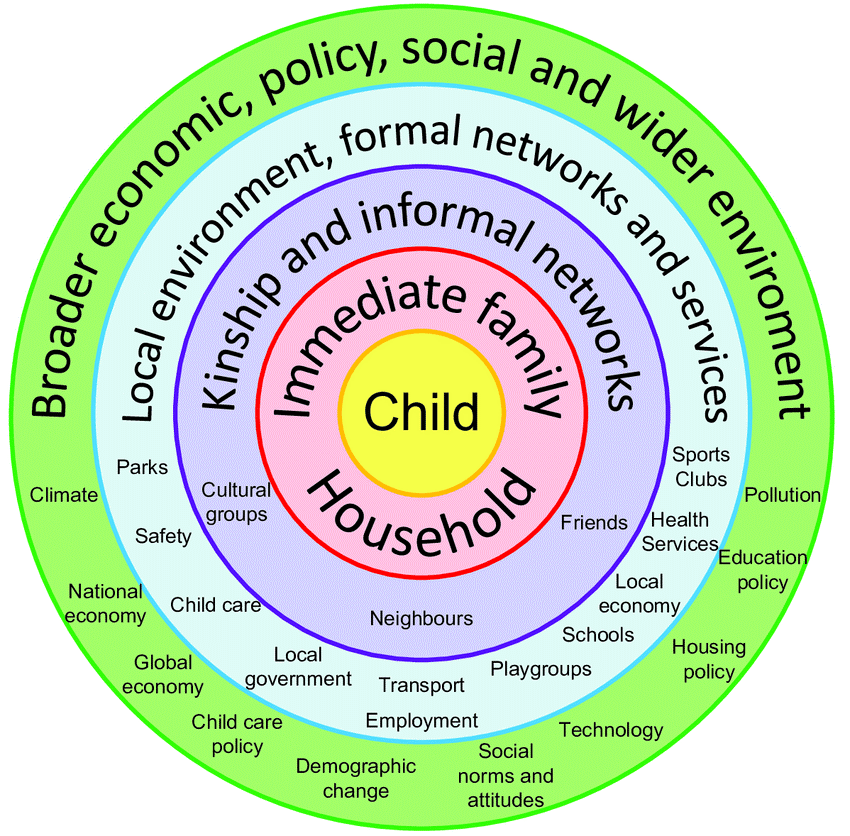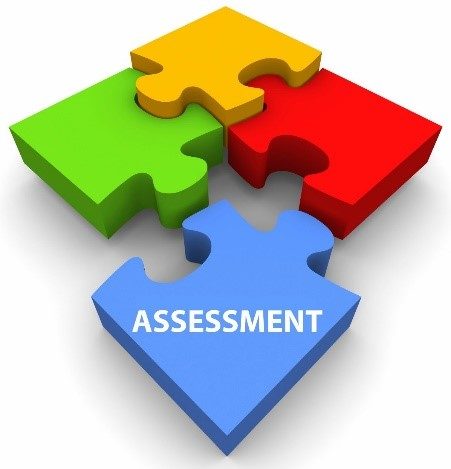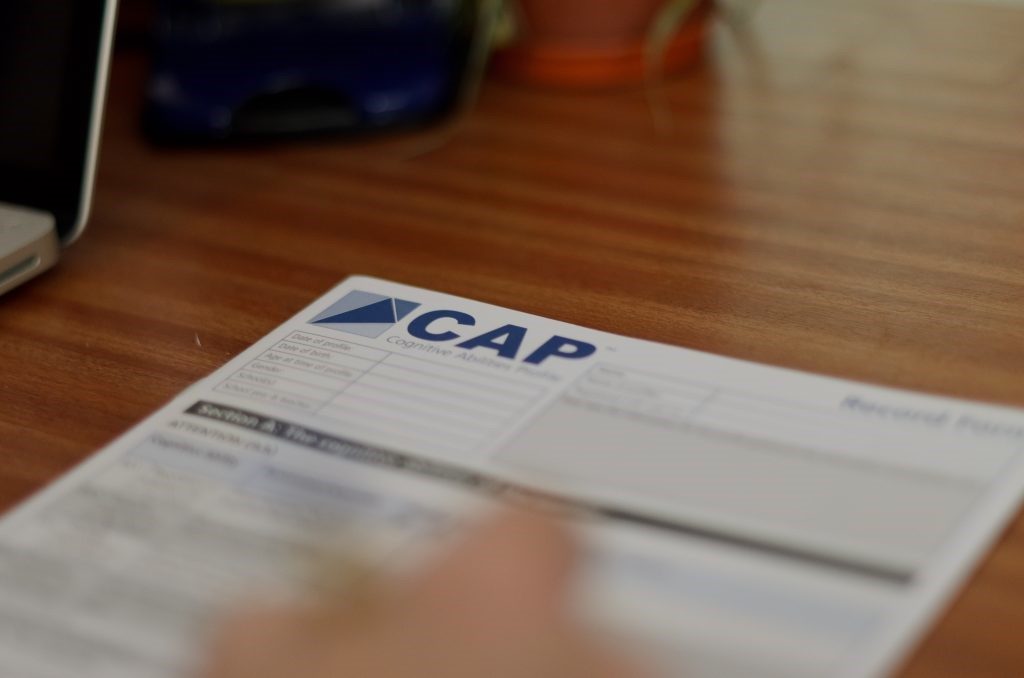Aberdeenshire Educational Psychology Service use a Consultation model of service delivery. This means that the majority of our assessment is completed within a Consultation meeting. Please click here for more about consultation in Aberdeenshire. Sometimes another assessment method is used when further information is required that cannot be obtained during the meeting. For example an Educational Psychologist may suggest an Observation, Dynamic Assessment/Cognitive Abilities Profile or sensory profile the rational for their selection would arise from the Formal Consultation meeting.
Assessment is a continuous process which is designed to:
- address a particular concern
- focus on the areas where the difficulties arise
- be a positive experience for the child
- consider the views of everyone present
- provide those involved with the child a clear understanding of the situation in a way that supports positive change
- take account of all the influences on the child (see below)

According to the ecological theory (Bronfenbrenner, 1979), everything within a child and his/her environment, affects the way they grow and develop. As such, assessment needs to consider the different systems around a child in order to provide support at the right time and in the right place. Educational Psychologists support single and multi-agency assessments in line with GIRFEC principles and practices. Click here for more information about Getting it Right for Every Child in Aberdeenshire.

Dynamic Assessment
 Dynamic Assessment considers how the child solves problems and the learning processes they use. It focuses on what the child can do independently and with adult support (mediation) by exploring the underlying cognitive skills. The process can also identify which cognitive strategies require strengthening and what form of assistance works best. Consideration of learning behaviours is also possible.
Dynamic Assessment considers how the child solves problems and the learning processes they use. It focuses on what the child can do independently and with adult support (mediation) by exploring the underlying cognitive skills. The process can also identify which cognitive strategies require strengthening and what form of assistance works best. Consideration of learning behaviours is also possible.
Cognitive Abilities Profile (CAP)
The CAP draws upon developmental psychology concepts, such as Vygotsky’s Zone of Proximal Development as well as the work of Feuerstein and Lidz in the field of Dynamic Assessment. It is essentially a consultation/observation framework which is jointly completed by the people who know the pupil best and explores 3 elements: the student, the mediator (helper) and the task. The Educational Psychologist, along with input from teachers and parents/carers, analyse aspects of curriculum tasks and a pupil’s approach to these tasks, without necessarily directly assessing the pupil. Each section of the CAP is designed to assess one of these components:
- Section A – Cognitive abilities of the learner
- Section B – Response to teaching and mediation
- Section C – Analysis of the task

These sections are then analysed to produce a ‘Learning Plan’ with identified strategies for promoting success and defining clear cognitive targets which are evaluated over time.

